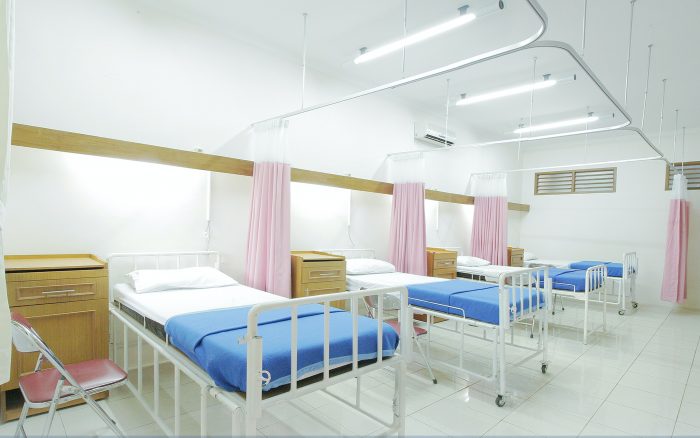Inside RCPA Member Pyramid Healthcare’s Push to Add 400 Behavioral Health Beds by 2024


The PA House of Representatives passed HB 1300 (Fiscal Code) by a vote of 121-82. The Fiscal Code contains language appropriating the $100 million for mental health funding, which follows the recommendations of the Behavioral Health Commission’s recommendations. The Fiscal Code also provides another $34.5 million to expand mental health services, $34 million for workforce initiatives, and over $30 million for criminal justice and public safety.
The House also passed HB 1456, a general appropriations bill. HB 1456 passed by a vote of 115-88. The bill provided new monies of $50 million towards intellectual disabilities and direct support professional (DSP) workforce retention. The bill would also fund $642 million for Penn State University, the University of Pittsburgh (Pitt), and Temple University. While there is good news for the IDD providers in regards to additional workforce funding, the bill was challenged by House Republicans because the Penn State, Pitt, and Temple funding requires a two-thirds (supermajority) vote, which was why the colleges were not funded back in June.
This week, the House also passed a tax code bill and a school code bill.
Despite the flurry of legislative activity on the code bills in the House, the code bills will not have to go to the Senate for a concurrence vote. The code bills passed by the House contain new spending (i.e. IDD workforce retention), and the new spending was not negotiated with the Senate; therefore, the expectation is that because there is not a deal between the House and the Senate on the new spending, the Senate will not concur on the code bills.
The Senate will return to session on Monday, October 16.
March to Promote Increased Funding for Mental Health Initiatives
We are just days away from the March on Harrisburg, and we cannot wait to advocate alongside you and our partner stakeholders on Wednesday, September 27, 2023, on the Capitol steps at 10:30 am. The t-shirts will be green, and while we would love to have enough to go around, there is a chance we will not. Everyone is hearing the call, and the number of registrants has grown in the past week! Please consider wearing green if you have it!
Please review the agenda for the day as well as march logistics regarding getting to Harrisburg, parking, and the march route. We have some amazing and inspirational speakers joining us, including Rep. Mike Schlossberg, as we all come together and raise our voices for a united message.
The flyer includes information for registering. Registration is for planning purposes as well as to help us understand how we can better support our CSPs and individuals who may need assistance with transportation. Everyone is encouraged to join us on the day of the event, even if you do not register. We encourage you to register here. You can also follow the Facebook event page for more information.
We look forward to seeing you at the March on Harrisburg on Wednesday, September 27 at 10:30 am. If you have any questions or need to make arrangements to attend, please contact RCPA Policy Director Jim Sharp.
The National Council for Mental Wellbeing is calling for support to address the ongoing mental health and substance use crises. They are organizing a virtual advocacy event called Hill Day on October 18 from 1:00 pm – 4:00 pm EST, where participants can urge elected officials to focus on key issues such as the behavioral health workforce shortage, establishing Certified Community Behavioral Health Clinics (CCBHC) into federal law, expanding access to substance use care, and investing in crisis care infrastructure. Register for the event today!
March to Promote Increased Funding for Mental Health Initiatives
We are just a few weeks away from the March on Harrisburg, and we cannot wait to advocate alongside you and our partner stakeholders on Wednesday, September 27, 2023, on the Capitol steps at 10:30 am.
Please review the agenda for the day as well as march logistics regarding getting to Harrisburg, parking, and the march route. We have some amazing and inspirational speakers joining us as we all come together and raise our voices for a united message.
The flyer includes information for registering. Registration is for planning purposes (i.e., there will be limited number of t-shirts) as well as to help us understand how we can better support our CSPs and individuals who may need assistance with transportation. Everyone is encouraged to join us on the day of the event, even if you do not register. We encourage you to register here. You can also follow the Facebook event page for more information.
Stay tuned for more details about the speakers and comment cards that will be available for you to share with your legislators. We look forward to seeing you at the March on Harrisburg on Wednesday, September 27 at 10:30 am.
If you have any questions or need to arrange to attend, please contact RCPA Policy Director Jim Sharp.
The Pennsylvania Technical Assistance Center for First-Episode Psychosis (FEP) programs is partnering with the Central East Mental Health Technology Transfer Center (MHTCC) for a one-day training on Wednesday, September 13, 2023, from 9:00 am – 4:00pm. The session is titled, “Recognizing and Responding to Emerging Psychosis in Adolescents and Young Adults: A Training Workshop for Community Mental Health Providers.”
This free event will take place in Philadelphia and may be attended virtually or in person. Visit here to register. If you have any questions, please contact Crystal Vatza, HeadsUp Education and Telehealth Manager, via email.

The PA Department of Human Services and PA Care Partnership are excited to announce the 21st Children’s Interagency Conference is scheduled for April 22 – April 25, 2024, at the Penn Stater Hotel, State College, PA. The conference theme is “Shine The Light on Mental Health – Building Youth Wellness & Resilience.”
Hosted by the PA Department of Human Services, Office of Mental Health and Substance Abuse Services, Bureau of Children’s Behavioral Health Services and the PA Care Partnership, the conference brings together Pennsylvania’s Child and Adolescent Service System Program (CASSP) and System of Care (SOC) partners providing behavioral health services. The conference will provide an excellent opportunity for providers, county administrators, youth, family members, practitioners, and educators to learn about changing trends, promising and best practices, resources, and various system of care activities across Pennsylvania. The conference will also add a national perspective on a variety of issues, including government, family peer, early childhood, youth leadership, and school-based mental health.
See the Save the Date flyer, and please share it with your contacts and invite them to attend. Visit the conference website for additional information. For questions or more information, contact our contract meeting planner Katrina Harris at 610-494-8044 or via email.